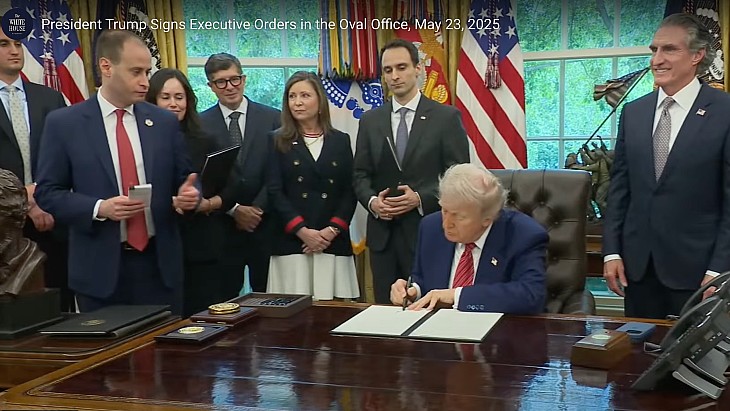UK, Canada sign Nuclear Cooperation Agreement
.jpg)
Announcing the agreement, BEIS said the UK has now concluded all replacement international agreements needed to ensure continuity of civil nuclear trade following Euratom exit.
"The signing of this NCA follows the recent signing of bilateral NCAs with Australia in August and the US in May. These NCAs will continue the effect of current arrangements provided for by UK membership of Euratom, which will cease to apply to the UK upon departure from the EU, ensuring a seamless transition for the nuclear sector in terms of its international relations," BEIS said.
"The UK-Canada NCA is the final NCA necessary to meet a legal requirement set in the Nuclear Safeguards Act 2018 to have in place all of the instruments required to ensure continuity of civil nuclear trade with international partners following the UK’s withdrawal from Euratom," it added.
The NCA with Canada was signed in Ottawa by Mark Gwozdecky, Canadian assistant deputy minister, International Security & Political Affairs, and Susan le Jeune d'Allegeershecque, British high commissioner to Canada.
Following the signing ceremony, UK Business and Industry Minister Richard Harrington said: "This latest international agreement will help ensure our civil nuclear trade with Canada can continue seamlessly, providing certainty for our world-leading nuclear sector which provides one fifth of all our electricity. These preparations have been recognised as gold standard."
The three bilateral NCAs will shortly be laid before the UK Parliament for ratification, alongside the two nuclear safeguards agreements signed with the International Atomic Energy Agency in June. This will ensure that, "in the unlikely event” of there being no Brexit deal, they can come into effect at the end of March next year, BEIS said.
The UK itself does not require NCAs to be in place in order for trade in nuclear-related items, BEIS noted. However, NCAs are a requirement for civil nuclear trade in some countries, where there is a domestic legal or policy requirement for an NCA to be in place before such trade with other countries can be permitted. Australia, Canada, Japan, and the USA all require NCAs to be in place to facilitate nuclear-related trade. Therefore, these NCAs are an essential prerequisite for ensuring that the UK’s civil nuclear cooperation can continue unaffected.
The UK has had a bilateral NCA in place with Japan since 1998. The UK and Japan are putting in place arrangements to ensure that this NCA remains operable following the UK’s withdrawal from Euratom.











